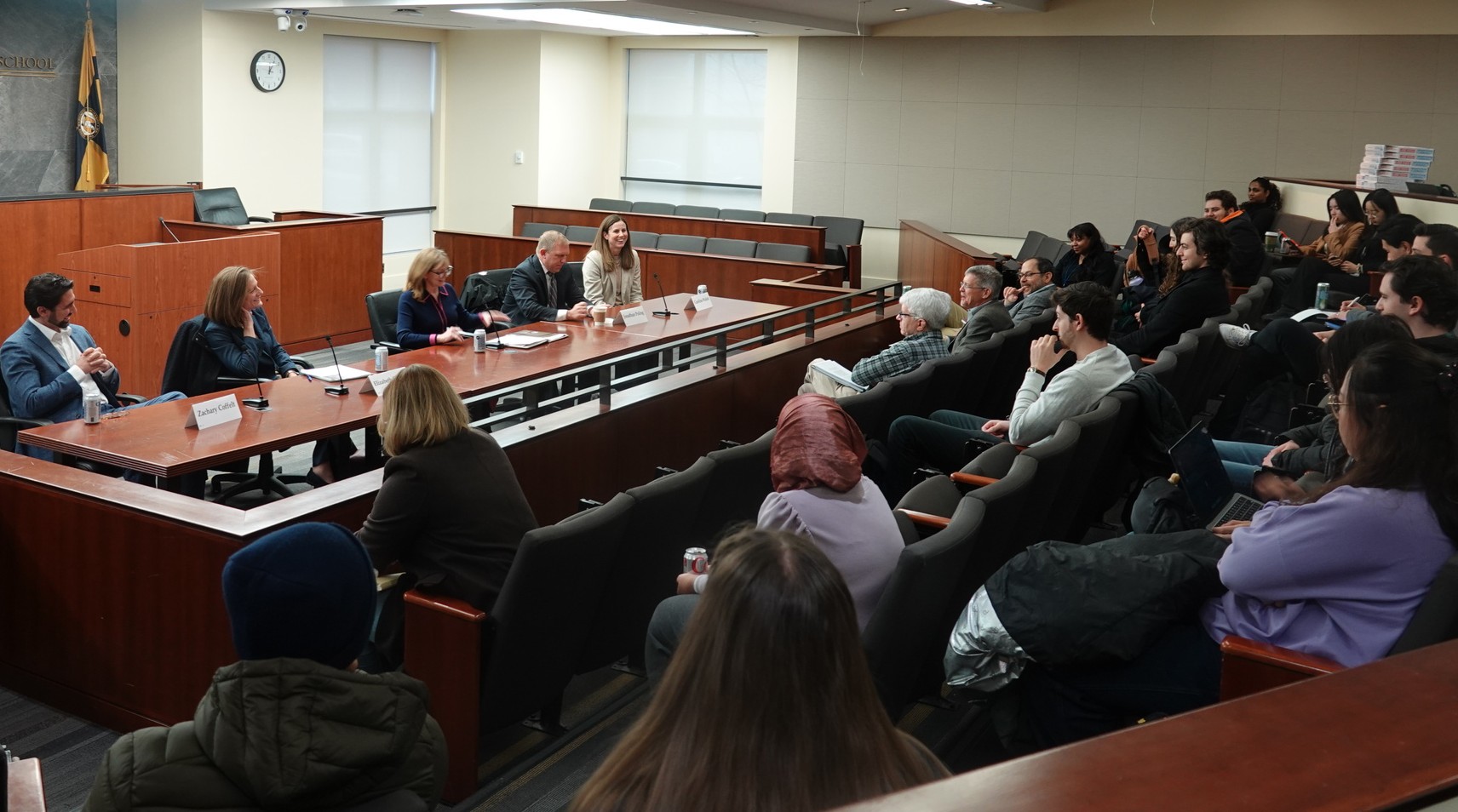On February 19, 2025, the National Security, Cybersecurity, and Foreign Relations Law Program, along with the National Security Law Association, hosted a "Global Trade & Export Control Career Panel" that attracted students eager to explore the dynamic intersection of law and global trade.
The panel, which was moderated by Visiting Associate Professor and National Security, Cybersecurity, and Foreign Relations Law Fellow Katie Kedian, provided a mix of government, law firm, and in-house counsel perspectives on the global trade and export control field:
- Caroline Walsh, a 2009 George Washington University alumna, has been practicing in the field for over 15 years. She is currently the Global Trade Leader for Digital Technology at RTX and she previously provided export controls and sanctions compliance advice to Fortune 500 clients at Covington and Burling in Washington, D.C.
- Jonathan Poling is Partner and Practice Group Leader at Akin for International Trade, White Collar & National Security, where he has been for over a decade, providing expert legal advice, nationally and internationally, on complex, high-stakes matters. He also brought to the discussion his prior experience as a prosecutor with the Department of Justice where he successfully handled many significant criminal export control cases.
- Elizabeth Cannon is the Executive Director of the Office of Information and Communications Technology and Services (OICTS) at the Bureau of Industry and Security in the U.S. Department of Commerce, whose mission is to address national security risks from certain transactions in the United States. She also previously served as Senior Corporate Counsel for Global Trade at Microsoft and as Deputy Chief for Export Controls and Sanctions at the U.S. Department of Justice.
- Zachary Coffelt is Associate General Counsel for Global Trade Compliance at Meta Platforms and has worked in the Global Trade field for over a decade.
Each of the speakers described their current jobs and discussed what drew them into the field of global trade and export control law. They also discussed how the field has evolved during their careers. Some of the advice for students interested in this area of the law included staying aware of current events in the field, as well as using networking skills to make connections with people already practicing in the field.
The panelists emphasized that global trade and export control law remains an exciting and burgeoning field for young lawyers. Several of the panelists also noted that the complexity of the laws and requirements in this field requires skilled lawyering, as well as that determinations about national security risks of new technologies will continue to add to the complexity in the years to come.
During the audience Q&A, the panelists discussed the process involved in regulating new and upcoming technologies, the importance of keeping up with news and literature to build a comprehensive understanding of the field, and the potential intersection between technology regulation and privacy issues.


